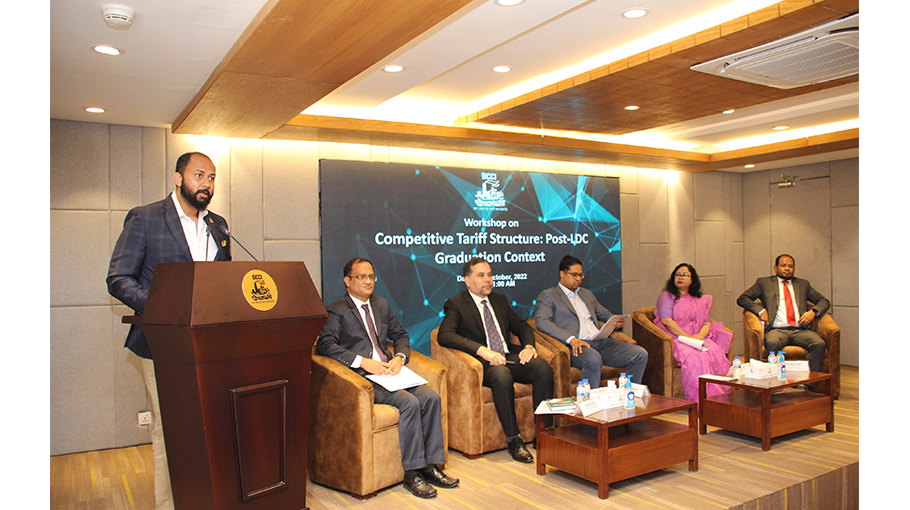Rationalised tariff structure key to facing post-graduation challenges
Experts say at DCCI workshop

Speakers at a workshop on Wednesday stressed competitive, rationalized tariff structure to face challenges to be arised during the post-LDC graduation period.
Dhaka Chamber of Commerce & Industry (DCCI) organised the workshop titled “Competitive tariff structure: post–LDC graduation context”.
President of Dhaka Chamber Rizwan Rahman said that after the LDC graduation, Bangladesh will have to pay 8% to 16% percent duty to the countries where we export. Moreover, we will not be able to impose any supplementary (SD) and regulatory duty (RD) to safeguard local industries which is going to be a challenge.
"At present our average tariff structure is about 13.5% which is higher than Viet Nam, Taiwan and Malaysia. We need to prepare ourselves in terms of enhancing productivity, cost minimization, industry skill development, ease of doing business and cost of doing business", he added.
Md. Mashiul Alam, Joint Chief, Bangladesh Tariff Commission presented the keynote paper.
In the keynote he highlighted that Bangladesh is a resilient country. Last year our export was USD 50 billion. Even after LDC graduation, Bangladesh has the capacity to adopt the challenges. But from now we have to go for regional integration for PTA, FTA and CEPA with potential trading partners to hold the market access.
"It is true that our tariff line is not very competitive and is higher than many other countries, therefore we have no alternative but rationalize it. In that case sectoral tariff policy for at least five years will be helpful for our exporters and importers", he added. Shis Haider Chowdhury, ndc, Member, Bangladesh Trade and Tariff Commission said that including government and private sector should work jointly to make our tariff structure competitive.
He said Bangladesh is going to be graduated from LDC in 2026 that is a good news for the country but recently we are going through a tough time due to Covid-led pandemic, Russia-Ukraine war, worldwide economic recession and natural disaster. Previously we were reluctant about FTA but now government is doing few studies to go for PTA and FTA. He also said that our tax to GDP ratio is only 7.9% which is not expected. After the graduation we will have to go for tariff rationalization at the same time we will have to concentrate on VAT and tax collection to balance revenue generation. Md. Neyamul Islam, First Secretary (Customs Exemption and Project Facilities), National Board of Revenue (NBR) said since we will lose preferential access and duty free quota free facility, considering these challenges, we increase our production capacity and attract FDI.
DCCI Senior Vice President Arman Haque chaired the workshop where around 50 member companies of DCCI took part in the workshop.




